
20 Examples of Irregular Verbs are in Sentences English » OnlyMyEnglish
Some sentences contain more than one example. Go get your brother. It's time to eat dinner. → In this example, all three irregular verbs (go, get, and eat) are in base form. I want to build a sand castle like the one we built last year. → In this example, the irregular verb build is in base form. The irregular verb built is the past.
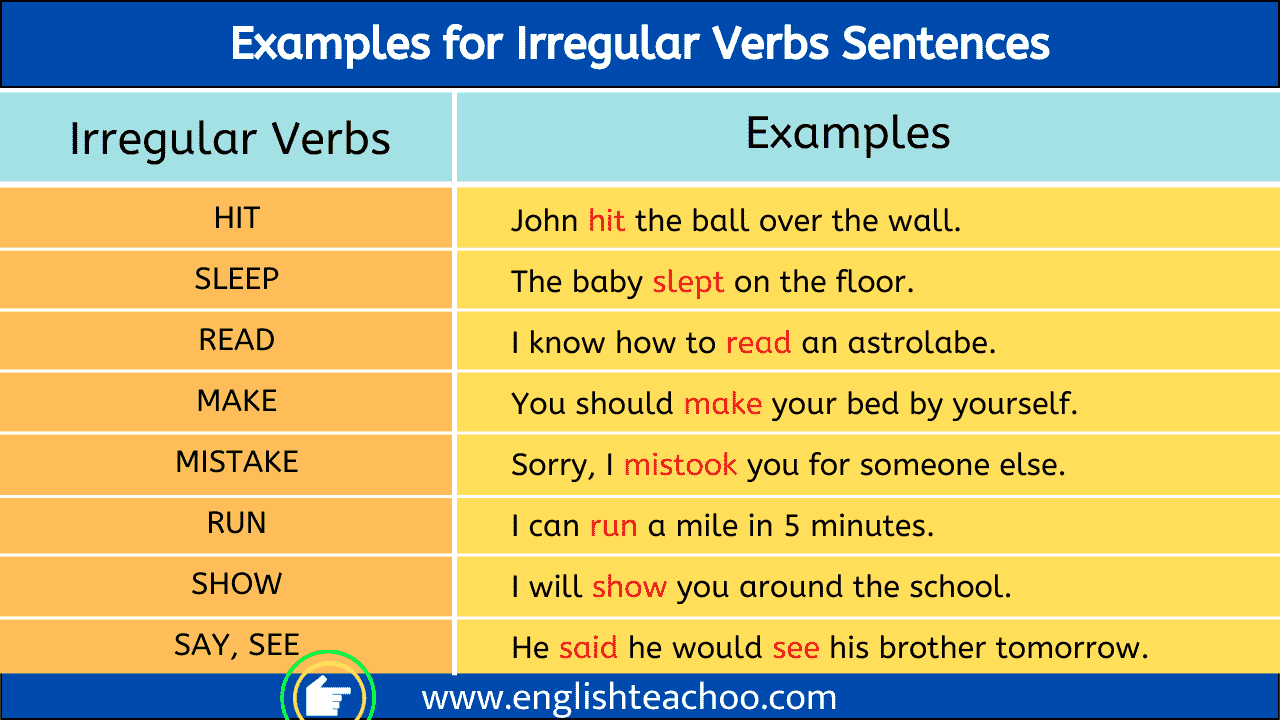
What Are 10 Examples for Irregular Verbs? EnglishTeachoo
The following is a list of 101 Irregular Verbs in the Past Tense with example sentences in English: Present tense - Past Tense: Example Sentence Be - was/were: They were happy. The boy was tired. Become - became: They became very angry. begin - began: He began work at seven. bend - bent: He bent over to pick up the newspaper. bet - bet: He bet all of his money.
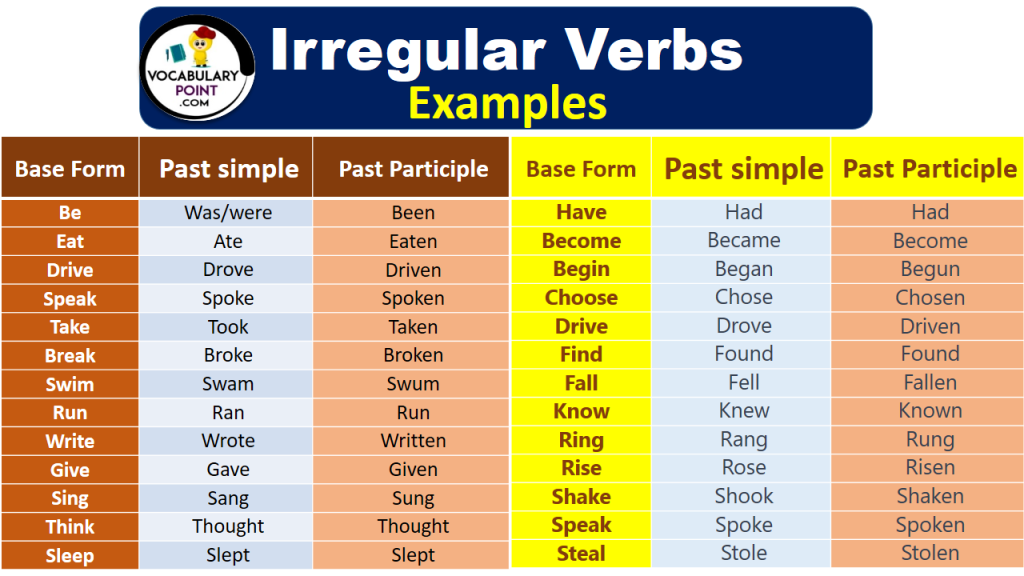
Irregular Verbs Examples Vocabulary Point
The table above has 10 commonly used irregular verbs and their meanings. 100 examples of irregular verbs sentences. Here are the first 25 of our 100 examples of irregular verbs sentences! Read and repeat them all for grammar, vocab, and fluency practice! Irregular verb sentences. I went to work early this morning. Sammy ate a delicious sandwich.

50 Examples of Irregular Verbs in Sentences EngDic
Like "be," quite a few other linking verbs are irregular as well, such as "become" and "feel." Also, irregular verbs can be either transitive or intransitive verbs and can still be used as imperative verbs.. Strong vs. weak verbs. Irregular verbs and regular verbs are often confused with strong verbs and weak verbs, although they are very similar.
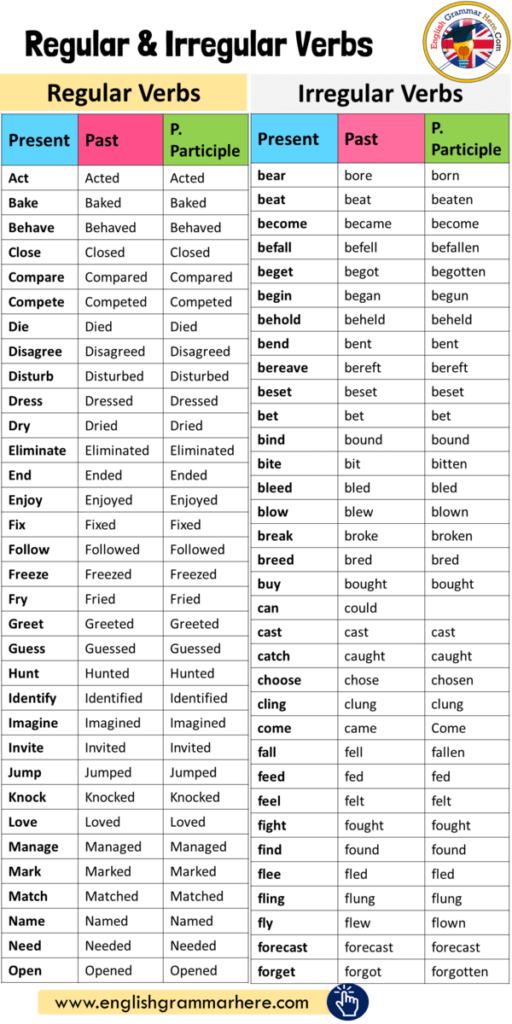
100 Examples of Regular and Irregular Verbs in English English Grammar Here
The past participle is a verb tense that is usually combined with a form of "has" or "be" and indicates the completion of an event before another event occurs in the present. Irregular verbs definition List of irregular verbs. Detailed below are lists of English irregular verbs broken down into four main categories:
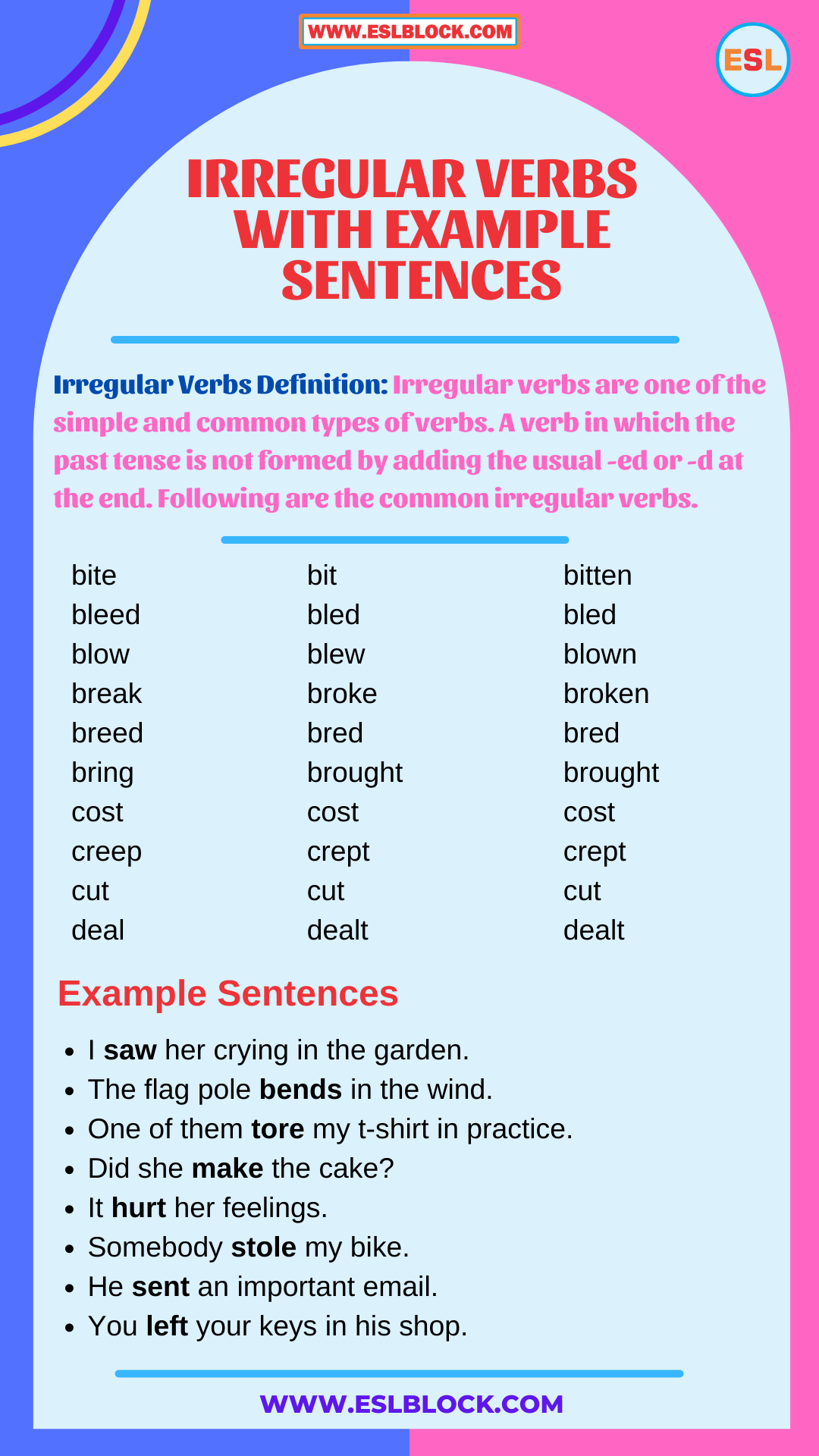
Irregular Verbs in English with Example Sentences English as a Second Language
An irregular verb is a verb whose simple past and past participle do not follow specific conjugation rules. In contrast to irregular verbs, regular verbs are verbs whose simple past and past participles are formed by adding "-ed" to the end of the verb (e.g., "talk" becomes "talked"). Examples: Irregular verbs The old man sang . a song.
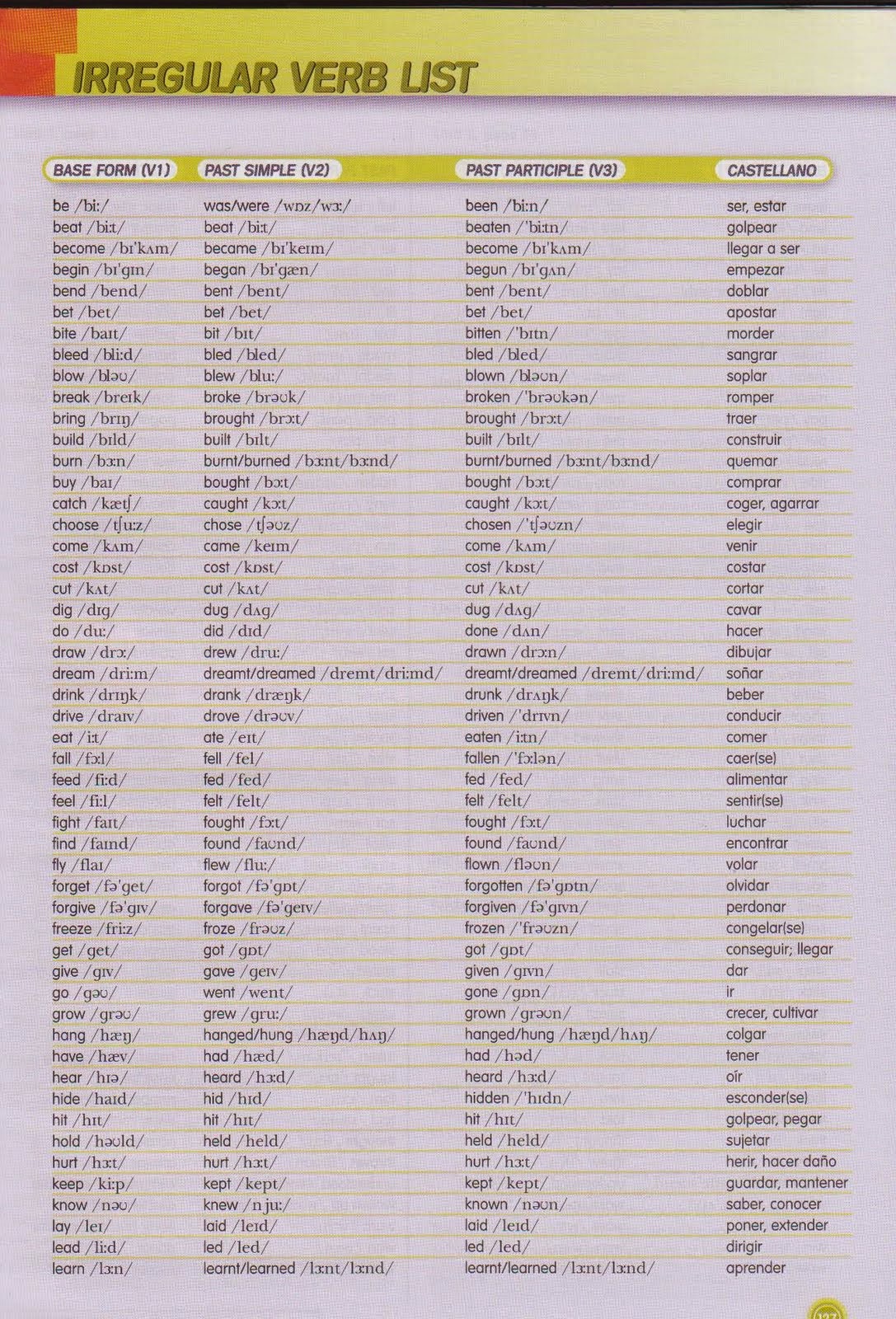
ENGLISH CORNER Irregular verbs
Examples of Irregular Verbs. In the following example sentences, irregular verbs are highlighted in italics/Bold. While reading, think about whenever using different irregular verbs. She writes a letter to her husband. They wake me up early in the morning. You can understand my feelings. You guys make her crazy.

Verbs Irregular Past Tense Verb Sentence Drills C knew, grew, drew, threw, blew, flew Banter
Affirmative sentences containing the second form of verbs are required in order to convey that we have completed action in the past tense. Ordinarily, the second form of a regular verb is produced by appending the suffix "-ed" to the verb; however, in irregular verbs, the word spelling is different. Because irregular verbs do not obey any.
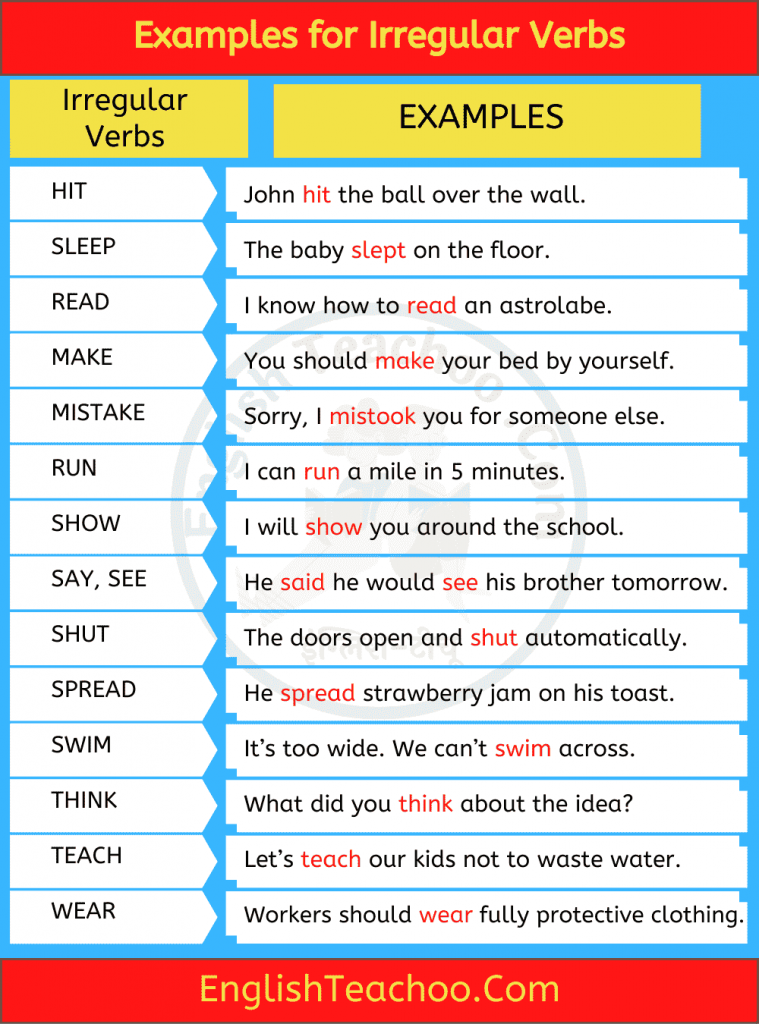
What Are 10 Examples for Irregular Verbs? EnglishTeachoo
In this post, you will find examples of sentences with irregular verbs with different tenses in English. An Irregular verb is a verb in which the past tense is not formed by adding the usual -ed ending. These are some examples of sentences using irregular verbs: #1: Somebody stole my wallet #2:

10 Examples of Irregular Verbs in Sentences EngDic
The Most Common Irregular Verbs The most common irregular verbs in English are be, have, and do. Aside from these three (which deserve a special status for being both main or auxiliary verbs), the top 10 irregular verbs in English are: see, say, go, come, know, get, give, become, find, and think.

100 Examples Of Irregular Verbs Sentences IMAGESEE
"Go," "have," and "make" are just some irregular verbs, whose past tense and past participle forms don't follow the rules. Learn more about irregular verbs.
:max_bytes(150000):strip_icc()/ThoughtCoChalkboard9-5b35491446e0fb003ebe4128.png)
Examples Of Irregular Verbs In Simple Past Tense BEST GAMES WALKTHROUGH
Example Sentences Using Irregular Verbs . Click on one of the irregular verbs listed below for example sentences using the verbs in all tenses including active and passive forms, as well as conditional and modal forms. To help you choose the verb you need, each verb includes three example sentences to get you started.
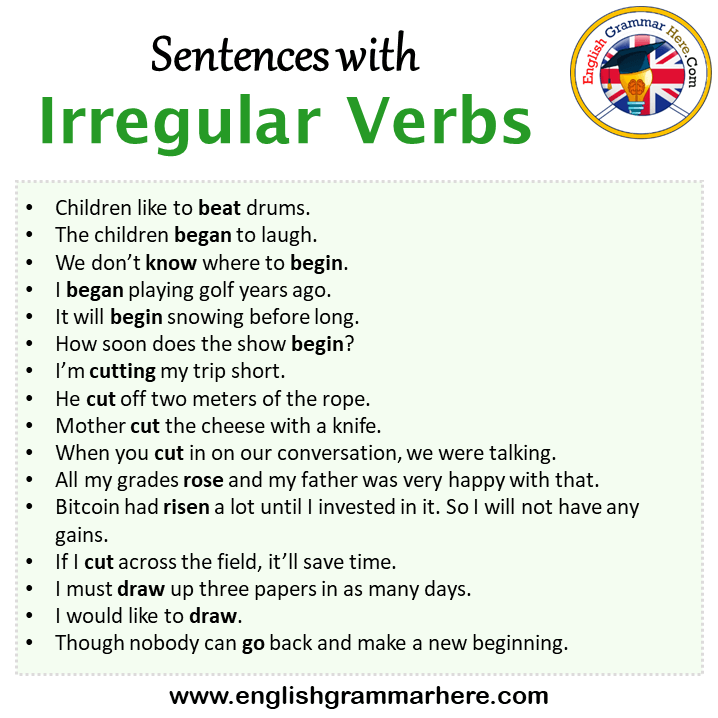
Sentences with Colons, Colons in a Sentence in English, Sentences For Colons English Grammar Here
No Pattern: Some irregular verbs do not follow any consistent pattern, and their past tense and past participle forms are unique. Example: Base Form: go; Past Tense: went; Past Participle: gone; Examples of irregular verbs. Here are some examples of irregular verbs: Strong verbs: go → went → gone; eat → ate → eaten; drink → drank →.
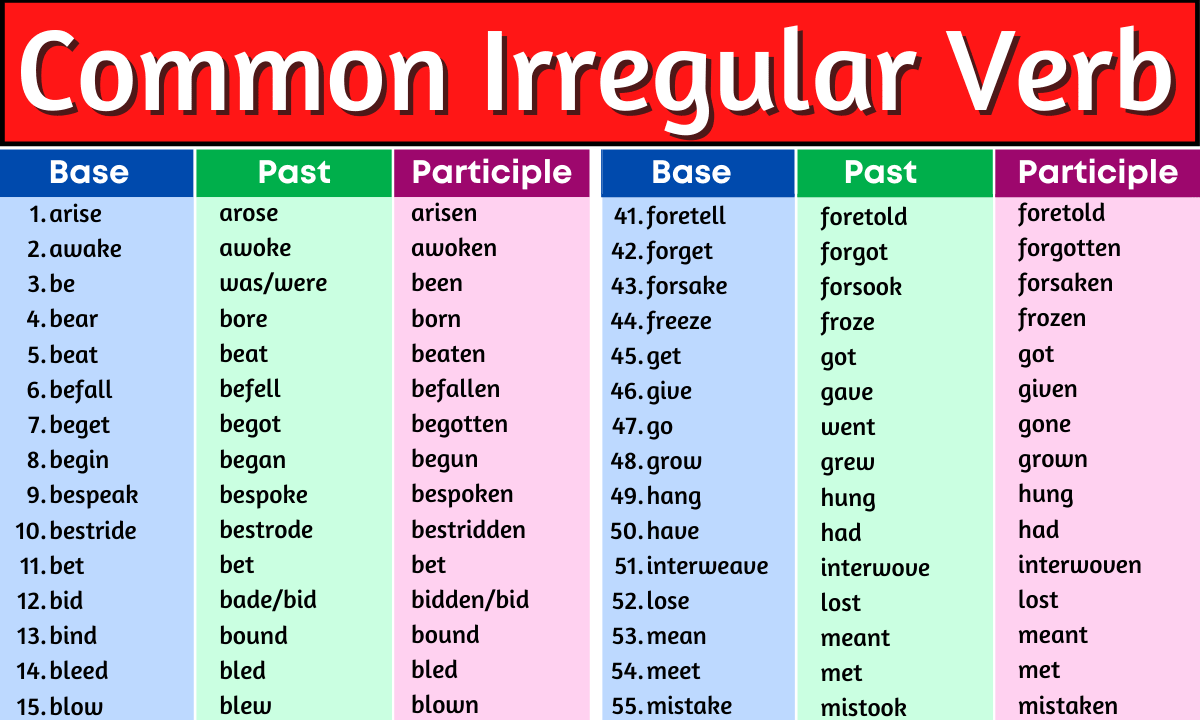
Irregular Verb Definition, Examples, and List »
Irregular Verbs Used in the Past Tense. Some examples of irregular verbs used in the past tense include: Eat (ate, eaten) Buy (bought, bought) Drive (drove, driven) Speak (spoke, spoken) Take (took, taken) How to Use Irregular Verbs in Different Contexts. Irregular verbs can be used in different contexts, depending on the situation.

50 Examples of Irregular Verbs in Sentences EngDic
#1. Irregular verbs in base form. I write a letter to my wife.; He wakes me up early in the morning.; I can understand your feelings.; David throws a ball very high into the sky.; If you want to tell me something, please tell me!; You take all these fruits to your home.; I come every day to swim in this lake.; You can sit here.; This phone rings every day at this time.; You guys make me crazy.
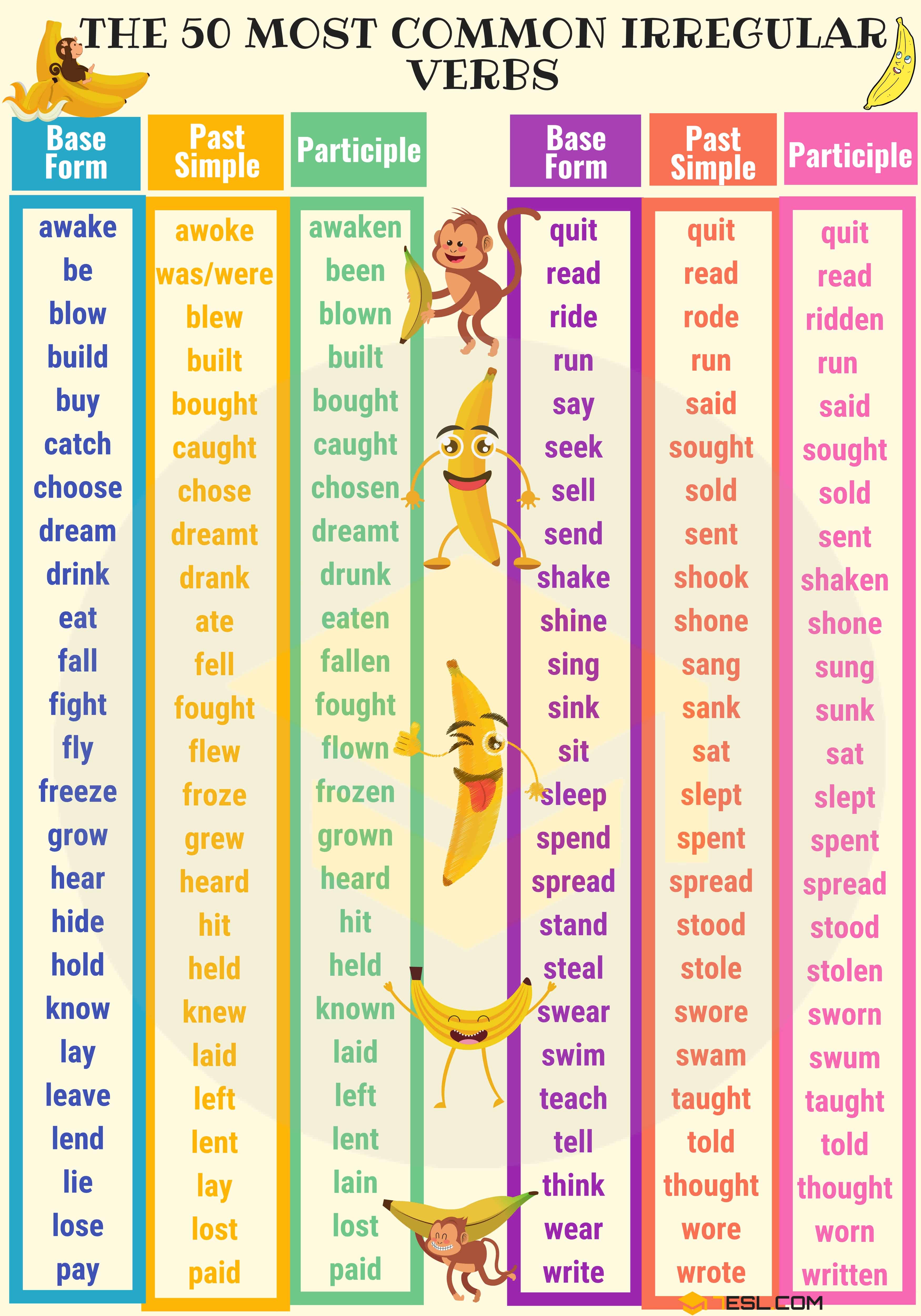
Irregular Verbs List Table of Irregular Verbs in English Grammar 7 E S L
For example, the verb 'go' is a strong irregular verb because it has a different form for each of the verb tenses: go, went, and gone. On the other hand, the verb 'sleep' is a weak irregular verb for its past tense, and the past participle form, 'slept,' is the same. Here are a few examples of strong and weak irregular verbs: